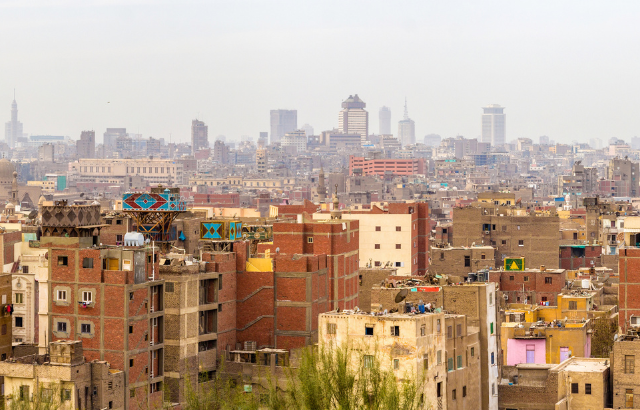Lack of appropriate governance and focus hampers the UNFCCC COPs
After attending COP27, Fernando Barrio, Senior Lecturer in Business Law in Queen Mary’s School of Business and Management, says It is becoming more and more evident that a radical new form of climate governance might be needed.

Fernando Barrio speaks at a panel event at COP27
It is less than a month since the end of COP27 in Sharm El-Sheikh, but the world’s attention has moved on to a myriad of issues unrelated to the climate emergency that is endangering the planet.
The 27th Conference of the Parties of the United Nations Framework Convention on Climate Change was hailed as a failure by most observers, and the big achievement that it had to offer was a last-minute ‘historic’ agreement on Loss and Damage. However, there is a very strong argument that what it was historic is the failure to reach that agreement in the last 30 years, and that history will not be kind to the parties that should have made Loss and Damage the starting point of the UNFCCC system back in Rio in 1992. Reaching the agreement should not have been met with celebrations, but with a minute of silence for what has been lost and which will not be recovered in that period.
What COP27 and the Loss and Damage also have as historic is that they provide further evidence of how detached from the needs of the planet the whole process is, and that includes both developed and G77 countries, who all keep playing global geopolitical games - and thinking about how to boost their respective budgets - while their citizens drown under climate-change related floods and their communities suffer the loss of their culture and traditions.
Even if we set aside the lack of details about the operationalising of the agreed fund and the fact that other funding promises have been made in the past, such as the unfulfilled 100 billion US dollars per year agreed in 2009, and we cling to the optimism that the agreement infuses in some participants, it is difficult to agree with the sense of achievement felt on the early hours of 20 November 2022 in Sharm El Sheik.
To achieve the Loss and Damage agreement, G77 countries had to side with some of the biggest greenhouse gases emitters of the planets. This means that to get the funds they deserve to tackle the harm done by climate events, those countries look the other way in seriously tackling further emissions. This implies that (if the loss and damage agreement is ever properly implemented) the amount of funds will keep spiralling up as the loss and damages are likely to increase due to insufficient commitment to reduce emissions by some of those countries.
As always, the devil is in the detail. An agreement which is needed and welcomed but which arrives 30 years late “acknowledge[ing] the urgent and immediate need for […] financial resources”, should already include detail on who will provide the funds, who will use them and how, instead of leaving that for next year.
After such a long delay in agreeing to the obvious, the parties had enough time to make sure that - in the event that this agreement is actually complied with – most of the funds don’t end boosting environmental ministries and institutions, or get lost in a web of intermediate organisations. A tiny proportion reaches those that suffered the actual loss and damage, while being used by emitters as a way to buy the right to keep polluting the planet.
COP27 was supposed to be the Implementation COP, and at the end of the day, when the lights were turned off in Sharm El Sheik, all we got was another agreement to further agree in future. The contributions to the loss and damage fund will be voluntary and the agreement does not create liability for the emitters, nor a right of compensation for those that suffer loss and damage. It is becoming more and more evident that a radical new form of climate governance might be needed if the planet is to avoid the path from climate emergency to climate Armageddon.
Related items
For media information, contact:
Pete BiggsInternational Communications Manager
email: p.biggs@qmul.ac.uk
